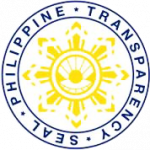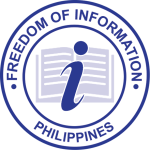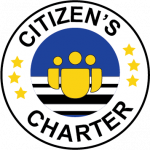- GOVPH
- About BOC
- Issuances
- Aduana Library
- Memoranda
- Memoranda for Reference Values
- Customs Administrative Order (CAO)
- Customs Administrative Order (CAO) 2025
- CUSTOMS ADMINISTRATIVE ORDER (CAO) 2024
- Customs Administrative Order (CAO) 2023
- Customs Administrative Order (CAO) 2022
- Customs Administrative Order (CAO) 2021
- Customs Administrative Order (CAO) 2020
- Customs Administrative Order (CAO) 2019
- Customs Administrative Order (CAO) 2018 and Older
- Customs Memorandum Order (CMO)
- Customs Memorandum Circular (CMC)
- Customs Memorandum Circular (CMC) 2025
- Customs Memorandum Circular (CMC) 2024
- Customs Memorandum Circular (CMC) 2023
- Customs Memorandum Circular (CMC) 2022
- Customs Memorandum Circular (CMC) 2021
- Customs Memorandum Circular (CMC) 2020
- Customs Memorandum Circular (CMC) 2019
- Customs Memorandum Circular (CMC) 2018 and Older
- Customs Special Order (CSO)
- Custom Training Circular (CTC)
- Joint Memorandum Orders (JMO)
- Trade
- News Room
- Port Updates
- HR Corner
- Quicklinks
- Infographics
- Bureau of Customs Webinar
- Auction and Sales
- Bid Opportunities
- Invitation to Bid / Request for Quotation / Invitation for Negotiated Procurement / Notice to Conduct Direct Contracting – 2023
- Invitation to Bid / Request for Quotation / Invitation for Negotiated Procurement / Notice to Conduct Direct Contracting – 2022
- Invitation to Bid / Request for Quotation / Invitation for Negotiated Procurement / Notice to Conduct Direct Contracting – 2021
- Invitation to Bid / Request for Quotation / Invitation for Negotiated Procurement / Notice to Conduct Direct Contracting – 2020
- Invitation to Bid / Request for Quotation / Invitation for Negotiated Procurement / Notice to Conduct Direct Contracting – 2019
- Invitation to Bid / Request for Quotation / Invitation for Negotiated Procurement / Notice to Conduct Direct Contracting
- Bid Documents
- Bid Supplement
- Summary of Awarded Contracts
- Summary of Contracts Awarded 2023
- Summary of Contracts Awarded 2022
- Summary of Contracts Awarded 2021
- Summary of Contracts Awarded 2020
- Summary of Contracts Awarded 2019
- Summary of Contracts Awarded 2018
- Summary of Contracts Awarded 2017
- Summary of Contracts Awarded 2016
- Summary of Contracts Awarded 2015
- Summary of Contracts Awarded 2014
- Summary of Contracts Awarded 2013
- Annual Procurement Plan
- Customs Knowledge Resources
- References
- Gender Equality and Diversity
- Philippine National Trade Repository
- Philippine Tariff Finder
- Authorized Economic Operator
BOC Concludes the National Trade Facilitation Workshop on the Philippine e-Commerce Clearance and Taxation Mechanisms
The Bureau of Customs (BOC) in cooperation with the ARISE Plus Philippines Project successfully conducted the session on the Philippine e-Commerce Clearance and Taxation Mechanisms during the National Trade Facilitation Workshop on 4-6 April 2022 at the Dusit Thani Hotel, Makati City, Philippines.
During the morning session, Ms. Theresita Eisma, National Consultant from the ARISE Plus Philippines Project through the International Trade Center (ITC), a joint agency of the World Trade Organization (WTO) and the United Nations (UN), covered extensively the challenges associated with the country’s supply chain and logistics landscape, and how these, directly and indirectly, affect the Customs clearance process. Participants from the BOC and Philippine Trade Regulatory Government Agencies (TRGAs) shared their thoughts on the benefit of identity management in securing and protecting actors involved in e-Commerce clearance procedures and taxation mechanisms, and the need to benchmark the current processes against international best practices.
In the afternoon, Assistant Secretary Mary Jean T. Pacheco from the E-commerce Programme Office of the Department of Trade and Industry (DTI) presented the e-Commerce Philippines 2022 Roadmap, including areas of collaboration between the government and the private sector in accelerating the growth of Philippine e-commerce toward a future-ready, inclusive and dynamic enabling regulatory environment. All agreed that BOC plays a crucial role in ensuring speed and efficiency in the e-commerce clearance process and how to manage risks posed by limited knowledge on importers and the e-commerce supply chain.
In addition, Director Janet S. Cuenca from the DTI Bureau of Trade and Industrial Policy Research shared the results of the “Emerging Tax Issues in the Digital Economy”, a discussion paper that covered a study on the implications of digitalization for taxation, measures, and framework for designing the tax regime, including emerging issues in the digital economy. Director Cuenca’s presentation demonstrated that no country has been able to explain how it would even be possible to collect customs duties on data flows without causing significant disruption to the digital world, and no customs authority has been able to demonstrate how a digital tariff system would work in practice.
With the rapid growth of the e-Commerce , the BOC commits to continue its work not only in the drafting of the appropriate new regulations but also in the implementation of other related programs such as capacity building initiatives and risk management techniques. Moreover, the BOC will partner with e-Commerce operators to ensure full compliance and data quality, define the role and liability of operators, and making the most of existing technologies, especially those related to data analysis to facilitate the growth of the digital economy and to address distortions induced by levies at the national borders.
ABOUT GOVPH
All content is in the public domain unless otherwise stated.






